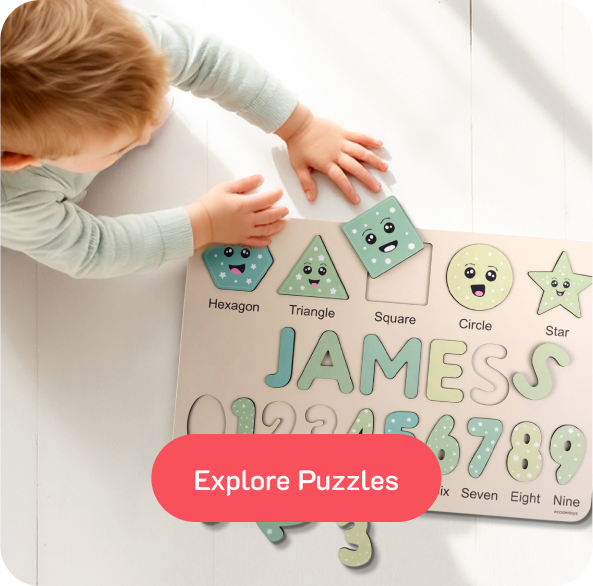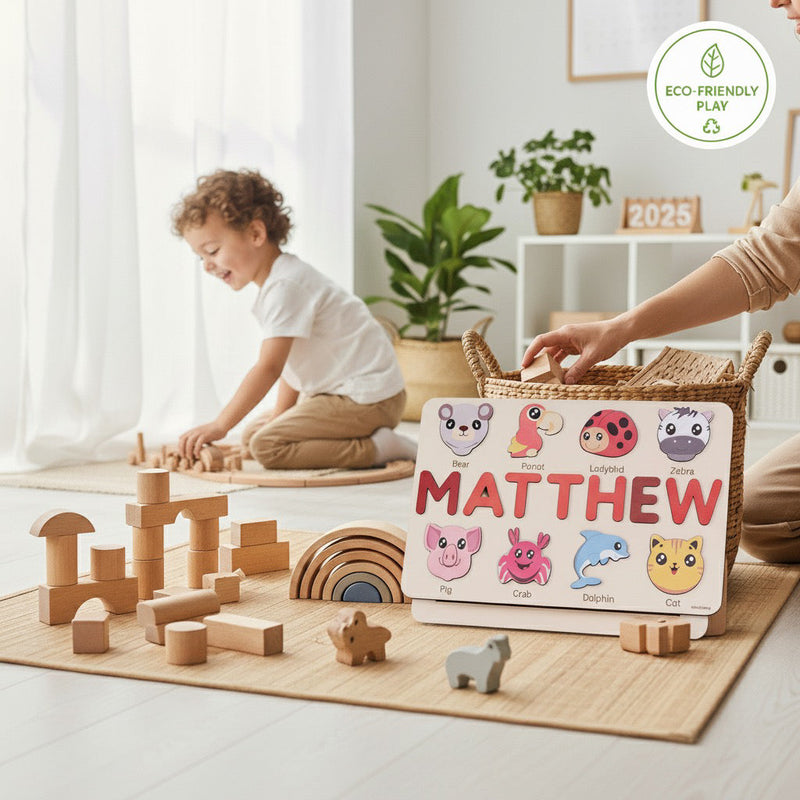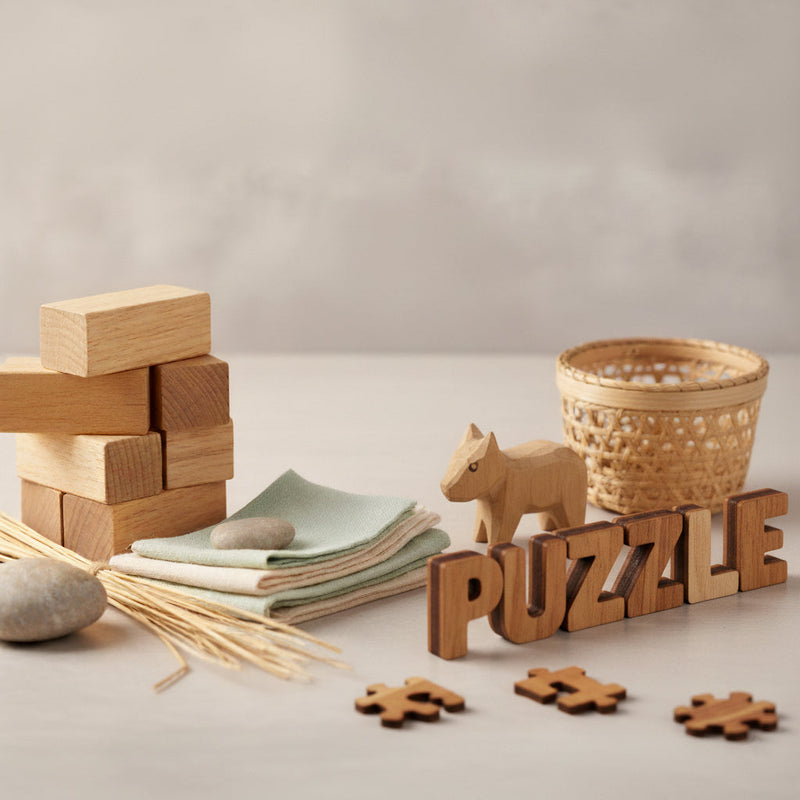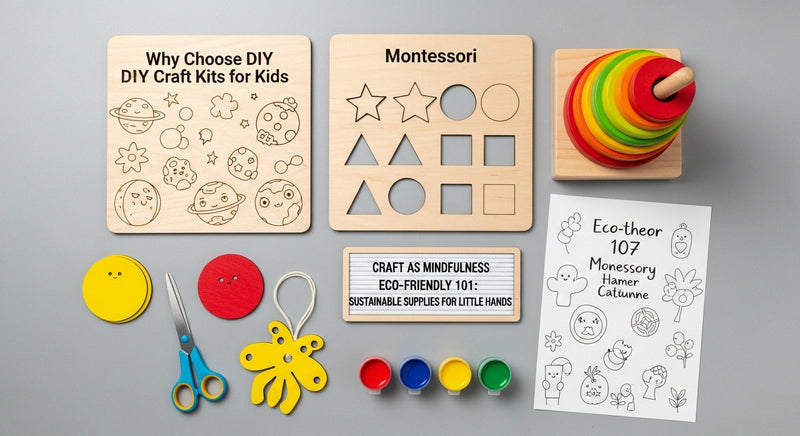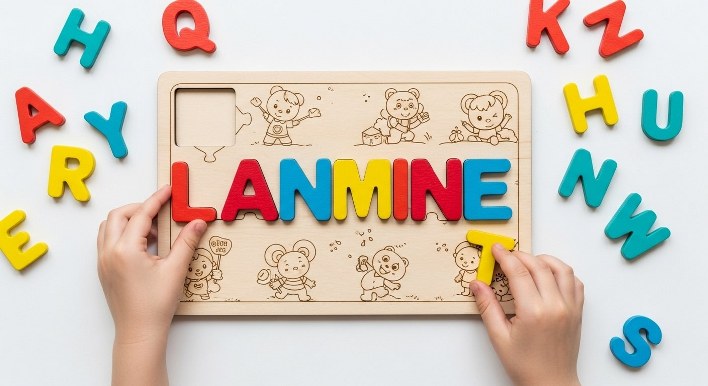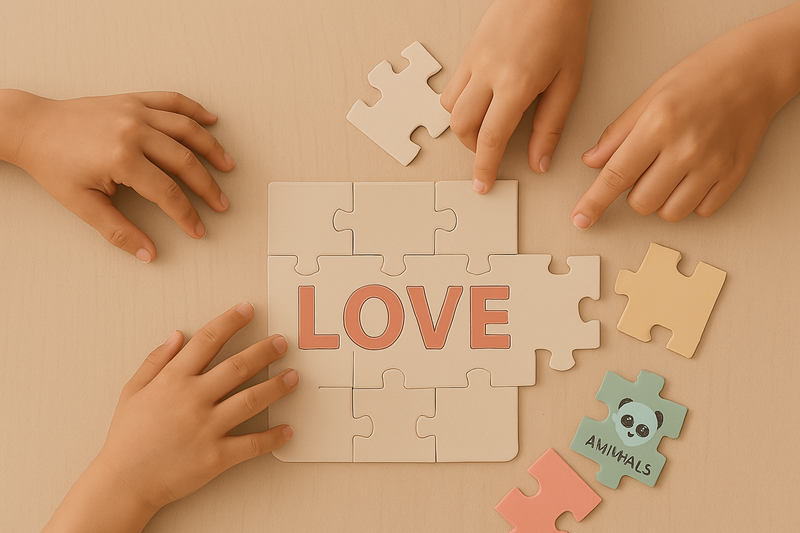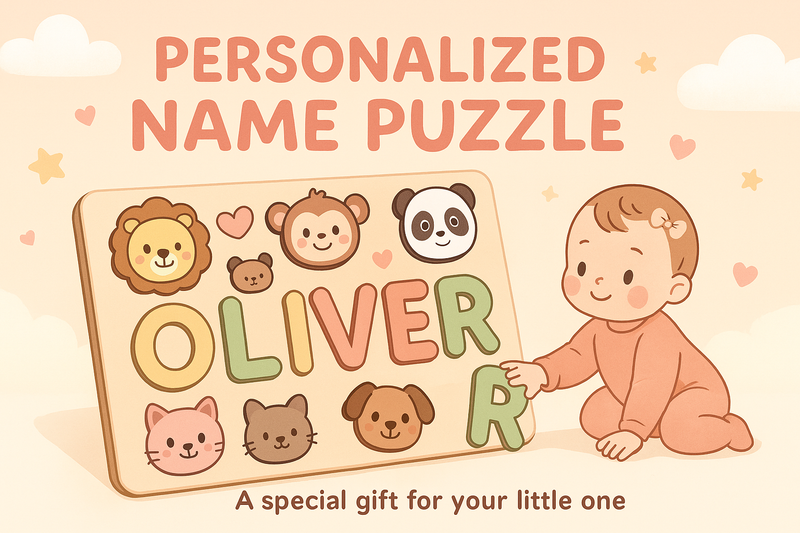Montessori play is a transformative approach to early childhood education that emphasizes hands on, self directed learning through meaningful activities. Developed by Dr. Maria Montessori, this method encourages children to explore their environment at their own pace, fostering independence, creativity, and a lifelong love of learning. By creating a nurturing home environment and using high-quality materials, parents can support their child’s development effectively. This guide, tailored for Wooden Toys Point, provides practical steps to implement Montessori principles at home.
What Makes Montessori Play Unique?
Montessori play stands out due to its child centered philosophy, which prioritizes a child’s natural curiosity and developmental needs. Unlike traditional play focused on entertainment, Montessori play is meaningful, designed to build cognitive, social, and motor skills through exploration and sensory engagement. This approach, as noted by Mansio Montessori, is often called "real pretend," focusing on real life scenarios in a playful, stress free manner.
The “Follow the Child” Philosophy Explained
The “follow the child” philosophy is central to Montessori education. It involves observing a child’s interests and developmental stages to offer activities that align with their needs. For example, a toddler fascinated with stacking can benefit from stacking toys to enhance coordination, fostering confidence through self directed exploration.
Self-Directed vs. Adult Led: Striking the Right Balance
Montessori play encourages children to choose their activities, promoting autonomy. Adults prepare the environment and offer subtle guidance, such as demonstrating a puzzle without directing the outcome. This balance, as supported by Montessori Northwest, ensures children feel supported while exploring independently.
Why Hands On, Sensorial Materials Matter for Brain Development
Montessori materials engage multiple senses, crucial for brain development. Tactile experiences, like tracing sandpaper letters, help children internalize concepts, enhancing memory and cognitive growth. These materials, available at Wooden Toys Point, are designed to make abstract ideas concrete.
Setting Up a Montessori Inspired Home Environment
A Montessori inspired home is accessible and organized to promote independence. Simple adjustments, such as low shelves and minimal toy rotation, create an inviting space for learning.
Creating a Child Height Play Shelf for Independent Choice
A low shelf allows children to select activities, fostering decision making skills. Place a few toys, like puzzles or blocks, in designated spots to maintain order, as recommended by Montessori principles.
Safe & Simple Ways to Rotate Toys for Fresh Engagement
Rotating toys every few weeks keeps activities engaging. Store extras out of sight and introduce new ones based on your child’s interests, preventing overwhelm and sustaining focus.
Lighting, Colors, and Layout: Subtle Tweaks That Boost Focus
Use natural light, soft colors, and an uncluttered layout to create a calm environment. A small, child sized table and chair can further support focused play.
Age by Age Montessori Play Ideas
Montessori activities are tailored to developmental stages, ensuring engagement and education.
0-6 Months: High Contrast Mobiles & Tactile Grasping Rings
High contrast mobiles stimulate visual development, while tactile grasping rings encourage fine motor skills. These activities support early sensory exploration.
6-18 Months: Object Permanence Boxes and Posting Games
Object permanence boxes teach babies that objects exist even when hidden, while posting games enhance hand eye coordination and problem solving.
18-36 Months: Practical Life Pouring, Spooning, and Button Frames
Toddlers enjoy practical tasks like pouring water or using button frames, which build fine motor skills and independence.
3-5 Years: Early Math Bead Chains & Sandpaper Letters for Pre Literacy
Bead chains introduce counting, while sandpaper letters teach letter shapes through touch, preparing preschoolers for math and literacy.
Essential Montessori Materials
High quality materials are key to Montessori learning, designed to be engaging and durable.
Key Features of High Quality Wooden Toys (Finish, Proportions, Safety)
Montessori toys, like those from Wooden Toys Point, use natural wood, smooth finishes, and meet safety standards (CE, ASTM), ensuring durability and safety.
Open Ended vs. Purpose Built: When Each Type Shines
Open ended toys, like blocks, foster creativity, while purpose built toys, like puzzles, teach specific skills. A balance supports varied learning experiences.
Curated Starter Kit: Five Must Have Pieces for Beginners
|
Toy |
Purpose |
Benefit |
|---|---|---|
|
Wooden Blocks |
Building, imaginative play |
Creativity, spatial reasoning |
|
Stacking Toy |
Size recognition, motor skills |
Fine motor skills, problem-solving |
|
Simple Puzzle |
Shape recognition |
Cognitive development |
|
Sensory Bin |
Tactile exploration |
Sensory development |
|
Pouring Set |
Practical life skills |
Independence, coordination |
The Role of the Prepared Adult
Parents facilitate Montessori play by creating a supportive environment and guiding without controlling.
Observation Journals: Spotting Sensitive Periods in Real Time
Journals help identify sensitive periods when children focus intensely on skills, allowing parents to provide relevant materials.
Phrasing Invitations to Play Without Directing the Outcome
Use open ended invitations like “Would you like to try this?” to encourage exploration without dictating outcomes.
Knowing When to Step Back: The “Pause, Wait, Watch” Strategy
After introducing an activity, pause and observe, intervening only if needed to foster problem solving skills.
Integrating Montessori Play Into Daily Routines
Everyday tasks can become learning opportunities with a Montessori approach.
Breakfast Prep as Practical Life Learning (Spreading, Pouring, Washing)
Involve children in tasks like spreading butter to build fine motor skills and independence.
Outdoor Exploration: Bringing Sensorial Lessons to the Backyard
Outdoor activities, like collecting leaves, enhance sensory development and environmental connection.
Wind Down Activities That Promote Independence at Night
Tasks like choosing pajamas promote responsibility and a calm bedtime routine.
Assessing Your Child’s Progress
Monitoring progress helps tailor activities to a child’s needs.
Using Checklists vs. Narrative Notes: Pros and Cons
|
Method |
Pros |
Cons |
|---|---|---|
|
Checklists |
Quick, tracks specific skills |
Less detailed |
|
Narrative Notes |
Detailed insights into behavior |
Time-consuming |
Red Flags to Watch For (And Gentle Interventions)
Watch for disinterest or difficulty, adjusting activities or consulting professionals if needed.
Celebrating Milestones Without Comparative Pressure
Celebrate achievements like mastering a puzzle, focusing on individual progress.
DIY vs. Store Bought
Parents can create or purchase Montessori materials.
Safe Materials You Likely Already Own (Scoops, Baskets, Clothespins)
Use household items like scoops for transferring activities to save costs.
Upcycling Everyday Objects Into Montessori Inspired Tools
Turn egg cartons into sorting trays for creative, budget friendly solutions.
Cost Benefit Analysis: Time Investment vs. Durability of Purchased Sets
DIY saves money but may lack durability; purchased sets from Wooden Toys Point offer longevity.
Troubleshooting Common Challenges
Address issues to ensure a positive Montessori experience.
My Child Throws the Materials Now What?
Redirect energy with sensory bins if activities are too easy or hard.
Short Attention Spans: Adjusting Task Difficulty and Duration
Start with simple tasks, gradually increasing complexity to match interests.
Sibling Dynamics in a Shared Montessori Space
Provide separate areas or encourage cooperative play to minimize conflicts.
Where to Find Authentic Montessori Toys
Choosing authentic toys ensures quality and educational value.
Evaluating Online Retailers for Credibility (Certifications, Reviews)
Look for safety certifications and reviews, as offered by Wooden Toys Point.
Sustainable Sourcing: FSC Wood, Non Toxic Paints, and Ethical Supply Chains
Choose FSC-certified, non-toxic toys for safety and sustainability.
Exclusive Discounts & Bundles at Wooden Toys Point
Explore stacking puzzles and name animal puzzles with discounts at Wooden Toys Point.
|
Toy Type |
Description |
Developmental Benefit |
Available at Wooden Toys Point |
|---|---|---|---|
|
Stacking Puzzles |
Animal-themed stacking toys |
Fine motor skills, problem-solving |
Yes |
|
Name Animal Puzzles |
Personalized animal puzzles |
Pre-literacy, cognitive skills |
Yes |
|
Wooden Blocks |
Open-ended blocks for building |
Creativity, spatial reasoning |
Yes |
